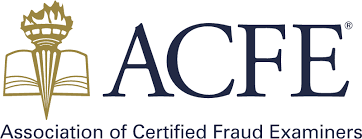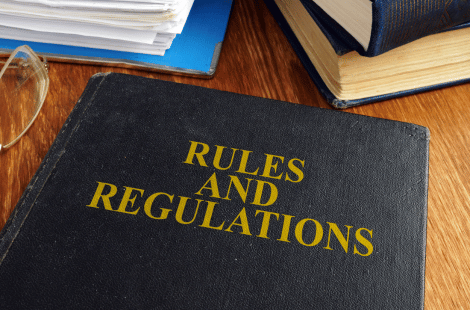
In the world of fraud prevention and investigation, having a recognized certification can make a significant difference in your career. The Certified Fraud Examiner (CFE) credential, offered by the Association of Certified Fraud Examiners (ACFE), is widely regarded as the gold standard for professionals dedicated to fighting fraud. In this blog post, we will explore the benefits, requirements, and impact of the CFE certification, highlighting how it equips individuals with the knowledge and skills to combat fraud effectively. Additionally, we will provide a link to the official ACFE website for further information.
Certified Fraud Examiner (CFE): A Definitive Anti-Fraud Credential The Certified Fraud Examiner (CFE) certification sets the standard for excellence in fraud prevention, detection, and investigation. It is specifically designed for professionals who aspire to specialize in fraud-related fields, including fraud examination, forensic accounting, and risk management.
Benefits of CFE Certification:
- Enhanced Expertise: The CFE certification equips professionals with specialized knowledge and skills in fraud prevention, detection, investigation techniques, and the legal aspects of fraud. This expertise enables individuals to effectively identify, prevent, and investigate various types of fraud schemes.
- Global Recognition: The CFE credential is globally recognized as a symbol of professional excellence in the field of fraud prevention and detection. It demonstrates a commitment to the highest ethical standards and a dedication to combating fraud on a global scale.
- Career Advancement: Holding a CFE certification can open doors to new career opportunities in various industries, including finance, government, consulting, and law enforcement. It enhances your credibility, demonstrates your expertise, and sets you apart from your peers in the field.
- Professional Network: Becoming a CFE connects you to a vast network of fraud-fighting professionals around the world. The ACFE provides opportunities to network, collaborate, and learn from experienced fraud examiners through conferences, events, and online communities.
Requirements for CFE Certification: To earn the CFE credential, candidates must fulfill the following requirements:
- Education: Possess a bachelor’s degree or equivalent from an accredited institution, or have at least two years of professional experience in a fraud-related field.
- Professional Experience: Have a minimum of two years of professional experience related to fraud prevention, detection, or investigation.
- Examination: Pass the CFE examination, which tests candidates’ knowledge in four key areas: Fraud Prevention and Deterrence, Financial Transactions and Fraud Schemes, Investigation, and Law.
- Adherence to the ACFE Code of Ethics: Uphold the highest ethical standards and adhere to the ACFE Code of Professional Ethics.
Impact and Recognition: The CFE certification has made a significant impact in the field of fraud prevention and detection. It has become a recognized standard for professionals dedicated to combating fraud globally. Holding the CFE credential demonstrates your commitment to ethical practices, sound investigation techniques, and comprehensive fraud prevention strategies.
Website Link: To learn more about the Certified Fraud Examiner (CFE) certification and access resources from the Association of Certified Fraud Examiners (ACFE), please visit their official website: ACFE Website







